Disclosure: This article contains affiliate links. We may earn a commission from purchases at no extra cost to you, which helps our travel content.
The first time I wandered through Lisbon's cobblestone streets eight years ago, I wasn't looking for shopping opportunities—I was simply mesmerized by the azulejo tiles, the melancholic fado music drifting from hidden doorways, and the way the sunset painted the city's hills in gold. But Lisbon, like many great loves in my life, revealed itself to me slowly, layer by layer. After three visits in recent years, I've discovered that beneath the tourist veneer lies a shopper's paradise that speaks to my soul—a delightful mix of vintage treasures, artisanal crafts, and sustainable finds that tell Portugal's rich cultural story. Whether you're hunting for the perfect ceramic souvenir or a one-of-a-kind vintage jacket, Lisbon offers retail therapy with soul, history, and remarkable value. And the best part? You can explore most of these shopping gems over a single weekend without breaking the bank. So grab your most comfortable walking shoes and an extra tote bag—we're going treasure hunting in Lisboa!
Feira da Ladra: Lisbon's Legendary Flea Market
If there's one shopping experience in Lisbon that captures the city's soul, it's the chaotic, charming sprawl of Feira da Ladra—the 'Thieves Market.' Despite what the name suggests, this isn't about stolen goods (at least not anymore!), but rather a centuries-old tradition where locals sell everything from genuine antiques to yesterday's forgotten knick-knacks.
I first discovered this market on a Tuesday morning in 2018, having purposely booked an Airbnb in Alfama to be within walking distance. As dawn broke over the city, I watched vendors unfurl blankets and set up makeshift tables across Campo de Santa Clara. By 7:30 AM, the place was already buzzing with serious collectors and curious tourists alike.
My greatest find here? A collection of hand-painted Portuguese tiles from the 1920s that now grace my kitchen backsplash in Bangalore—a daily reminder of Lisbon's artistic heritage. I paid just €45 for six tiles that an antique dealer later told me were worth triple that amount.
What makes Feira da Ladra special isn't just the potential bargains but the people. I spent an hour chatting with Maria, an elderly vendor who'd been selling at the market for over 40 years. She didn't speak English, and my Portuguese is limited to ordering coffee, but somehow we communicated through gestures, smiles, and the universal language of haggling. I walked away with her grandmother's vintage brass candlesticks and a story I'll treasure forever.
Be warned: this market requires stamina. I recommend bringing a collapsible tote bag for your finds and wearing comfortable shoes—you'll be navigating uneven cobblestones for hours. The market unfolds across multiple levels, so pace yourself and don't rush to make purchases at the first stall. The best deals often hide in the less trafficked corners.
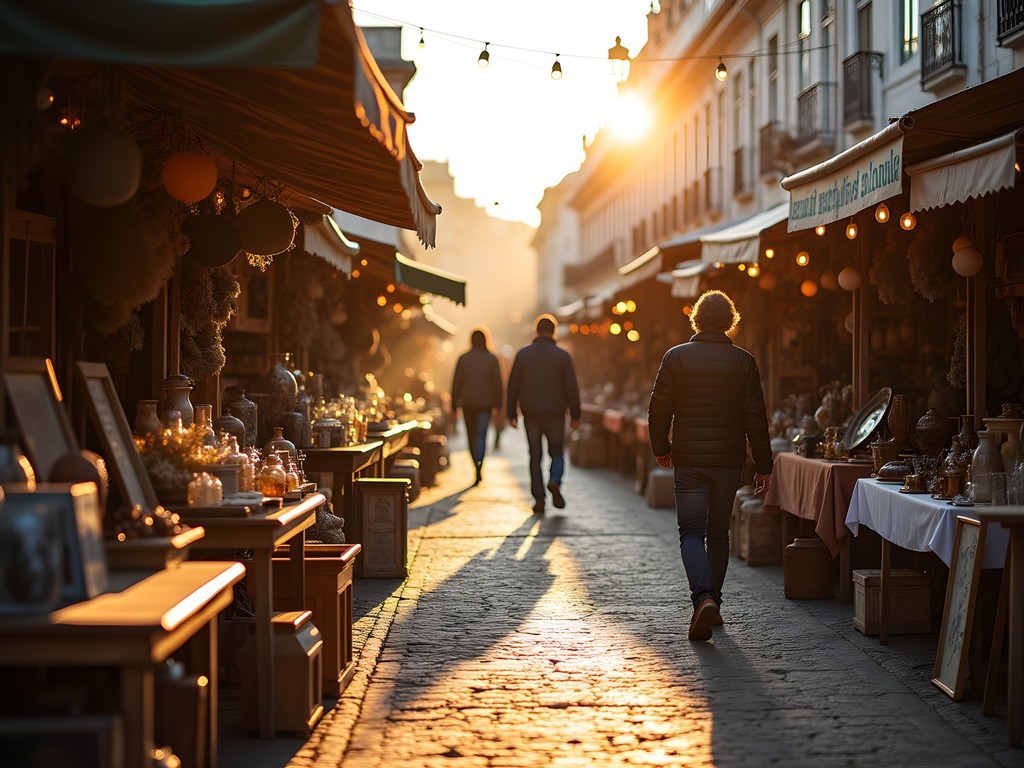
💡 Pro Tips
- Arrive early (before 8 AM) for the best selection and fewer crowds
- Bring cash in small denominations—most vendors don't accept cards
- Always haggle, but do so respectfully—start at about 30% below the asking price
A Vida Portuguesa: Nostalgia in a Shop
There's something deeply moving about how Portugal honors its cultural heritage, and nowhere is this more evident than in the carefully curated wonderland of A Vida Portuguesa. This isn't just a shop—it's a love letter to Portuguese craftsmanship and design.
Located in the former Fabrica da Cerveja Jansen (a beer factory) in Chiado, the store's high ceilings, wooden cabinets, and nostalgic displays transport you to another era. The first time I walked in, I felt like I'd stumbled into a living museum where, miraculously, everything was for sale.
What makes this place special is how it preserves traditional Portuguese brands and products that might otherwise fade into obscurity. From handmade soaps wrapped in vintage-inspired packaging to classic children's toys that have remained unchanged for generations, every item tells a story.
During my last visit, I spent nearly two hours exploring the store's treasures. I eventually left with beautifully packaged sardines (a Portuguese staple), hand-crafted notebooks from Porto, and Benamôr face cream—a beauty product that Portuguese women have sworn by since 1925.
For fellow travelers who appreciate both aesthetics and practicality, this shop offers souvenirs with substance. Rather than dust-collecting trinkets, you'll find usable items with cultural significance. I particularly recommend their selection of traditional Portuguese blankets from Alentejo—they're substantial purchases but worth every euro for their quality and authenticity.
Before visiting, I recommend bringing a packing cube set in your day bag. Trust me, you'll need the extra space for all your purchases, and these help compress soft goods like textiles to maximize luggage space for your return journey.
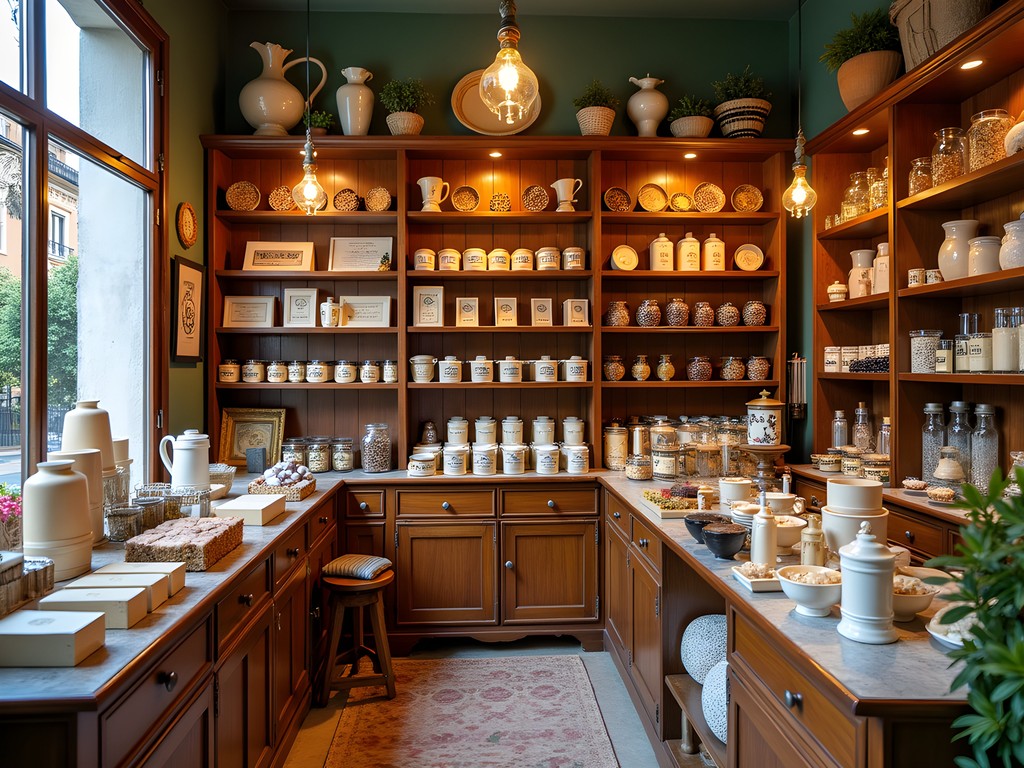
💡 Pro Tips
- Set a budget before entering—it's dangerously easy to overspend here
- Focus on smaller items like soaps, notebooks, and food products if luggage space is limited
- Ask staff about the history behind products—they're incredibly knowledgeable and passionate
LX Factory: Industrial Cool Meets Artisan Crafts
When my 30-something digital nomad friends suggested we visit LX Factory during my last Lisbon trip, I was skeptical. "It's where the cool kids hang out," they said, and at 60, I wasn't sure if that included me. How wonderfully wrong I was!
Set in a revitalized 19th-century industrial complex in Alcântara, LX Factory has transformed from textile manufacturing hub to creative ecosystem. Under the imposing 25 de Abril Bridge, this collection of warehouses now houses design studios, restaurants, quirky shops, and artisan workshops.
What struck me immediately was the intergenerational appeal. Unlike many trendy spots that seem exclusively designed for youth, LX Factory welcomes everyone from gray-haired bookworms like me to tattooed artists to families with small children. It's a refreshing reminder that creativity doesn't have an age limit.
My shopping highlights here were distinctly different from the traditional finds elsewhere in Lisbon. At Rutz, I discovered contemporary cork accessories—Portugal produces about half the world's cork, and these designers transform this sustainable material into stylish bags and jewelry. I purchased a cork clutch that has since become a conversation starter at every dinner party I've attended in Bangalore.
Another gem is Xou Concept Store, where independent Portuguese designers showcase clothing and accessories you won't find in chain stores. I found a hand-printed silk scarf that combines traditional Portuguese motifs with contemporary design—perfect for adding a pop of color to my travel wardrobe.
Between shops, don't miss Ler Devagar ("Read Slowly"), a bookstore housed in a former printing factory. Even if you don't read Portuguese, the flying bicycle installation and industrial-meets-literary aesthetic make it worth a visit. I spent an hour here nursing an espresso and people-watching from the mezzanine café.
LX Factory gets busy on weekends, so I recommend visiting on weekdays if possible. Many shops are small, so I found my crossbody bag ideal for keeping valuables secure while leaving my hands free to browse through merchandise.
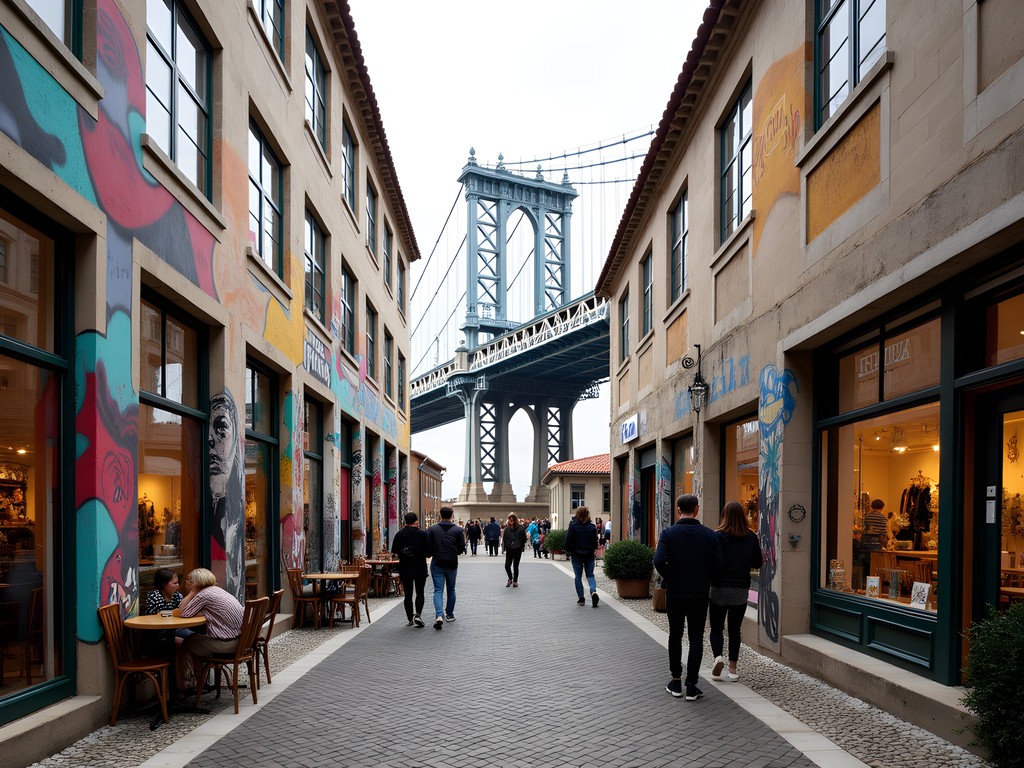
💡 Pro Tips
- Visit on Sunday for the weekly market with additional vendors and live music
- Combine shopping with dining—some of Lisbon's most creative restaurants are here
- Check their website before visiting as they often host exhibitions, workshops and pop-up events
Embaixada: Shopping in a Palace
If someone had told my younger self that one day I'd be shopping in a 19th-century Moorish-style palace, I would have assumed they were describing some extravagant dream. Yet that's exactly what Embaixada offers in Lisbon's elegant Príncipe Real neighborhood.
Housed in the stunning Ribeiro da Cunha Palace, Embaixada (which means "embassy" in Portuguese) brings together Portuguese designers and artisans under one spectacular roof. The building itself is worth visiting—with its ornate staircase, stained glass, and intricate arabesque details—but the carefully selected shops inside make it a must-visit for anyone seeking unique, locally-made items.
What I appreciate most about Embaixada is its commitment to sustainability and ethical production. After three decades in corporate HR watching fast fashion and disposable consumerism take hold, I find it refreshing to see a commercial space dedicated to mindful shopping.
On my most recent visit, I discovered UOY, a brand creating clothing from organic Portuguese textiles. Their linen dresses are perfect for Bangalore's heat while being elegant enough for client meetings. I also fell in love with Organii's natural cosmetics made with Portuguese olive oil and essential oils—their hand cream saved my skin during Portugal's surprisingly dry winter.
The jewelry at Embaixada deserves special mention. Portuguese filigree work is renowned worldwide, and several designers here offer contemporary takes on this traditional craft. I treated myself to a pair of silver earrings inspired by the famous Portuguese cobblestone patterns—a wearable reminder of Lisbon's beautiful streets.
Being a palace, Embaixada's architecture includes multiple levels and rooms to explore. I recommend taking your time and stopping at the charming café in the central courtyard when you need a break. Their pastéis de nata paired with a bica (Portuguese espresso) provided the perfect energy boost for more shopping.
For photography enthusiasts, the building's architecture offers countless opportunities for stunning photos. I was grateful to have my smartphone camera lens kit to capture both wide-angle shots of the grand spaces and detailed close-ups of the intricate architectural elements.
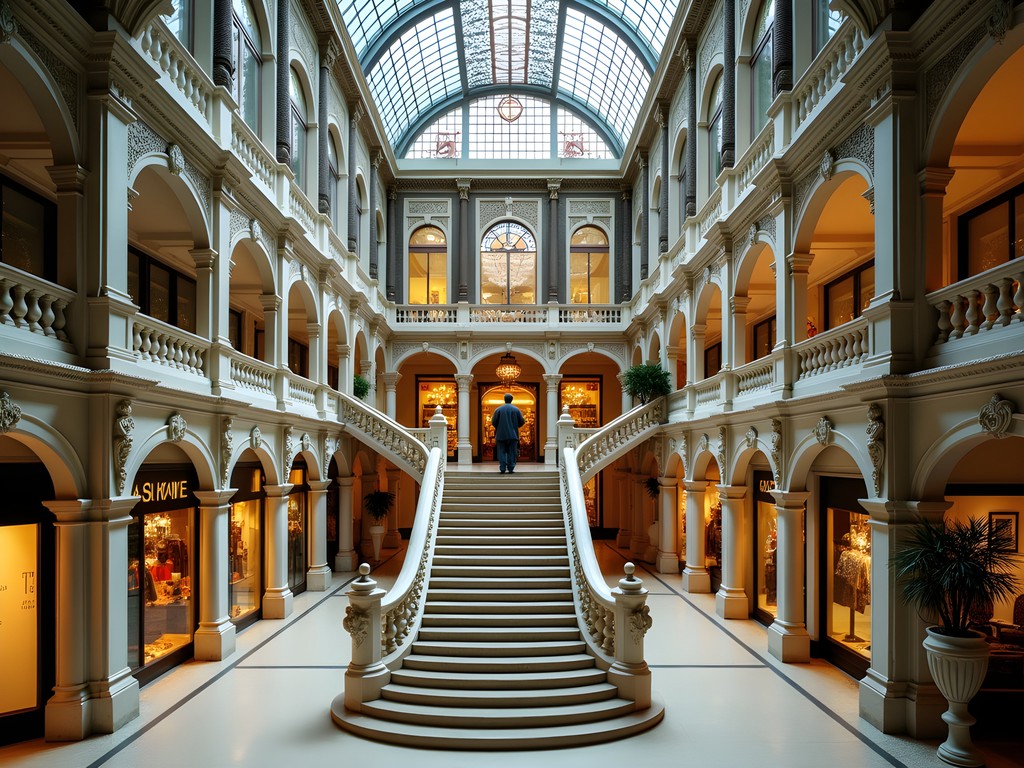
💡 Pro Tips
- Visit on weekday mornings for a more relaxed shopping experience with fewer crowds
- Check if any special exhibitions or events are happening during your visit—they often host pop-ups by emerging designers
- Look up! The ceilings throughout the building feature beautiful details that many visitors miss
Cork & Co: Portugal's Sustainable Treasure
Long before sustainability became fashionable, Portugal was pioneering eco-friendly materials through its centuries-old cork industry. While most people associate cork with wine stoppers, my visit to Cork & Co in Lisbon's Baixa district opened my eyes to the remarkable versatility of this material.
Having spent most of my career in corporate environments where sustainability initiatives were often more talk than action, discovering Cork & Co felt like finding kindred spirits who truly understood the balance between commerce and environmental responsibility.
Portugal produces about half the world's cork supply, harvested from the bark of cork oak trees without harming them—in fact, harvesting extends the trees' lifespan. The process allows the bark to regenerate every nine years, making it one of the most sustainable natural materials available.
At Cork & Co, this humble material is transformed into everything from fashion accessories to home décor. During my first visit, I was skeptical about cork's practicality—would it be durable enough for everyday use? Three years later, the cork wallet I purchased still looks fantastic despite regular use in both Bangalore's monsoons and my snowboarding trips to Japan.
On my most recent visit, I was drawn to their expanded collection of cork yoga mats and meditation cushions. As someone who practices yoga daily (yes, even at 60!), I appreciated finding equipment that's not only eco-friendly but also naturally antimicrobial and water-resistant—perfect for Bangalore's humid climate.
What makes Cork & Co special isn't just their products but their passionate staff. Ask them about cork production, and you'll receive an education on Portuguese forestry practices, the ecological importance of cork oak forests, and how sustainable harvesting supports rural communities. It's shopping with a side of environmental science!
For travelers concerned about luggage space, cork products are ideal souvenirs—they're lightweight, durable, and distinctly Portuguese. I've found that items from Cork & Co make perfect gifts that showcase Portugal's innovative approach to sustainable design.
If you're planning to purchase multiple items, consider bringing a foldable duffle bag in your luggage. I always pack one for shopping-focused trips, and it's saved me from excess baggage fees numerous times!
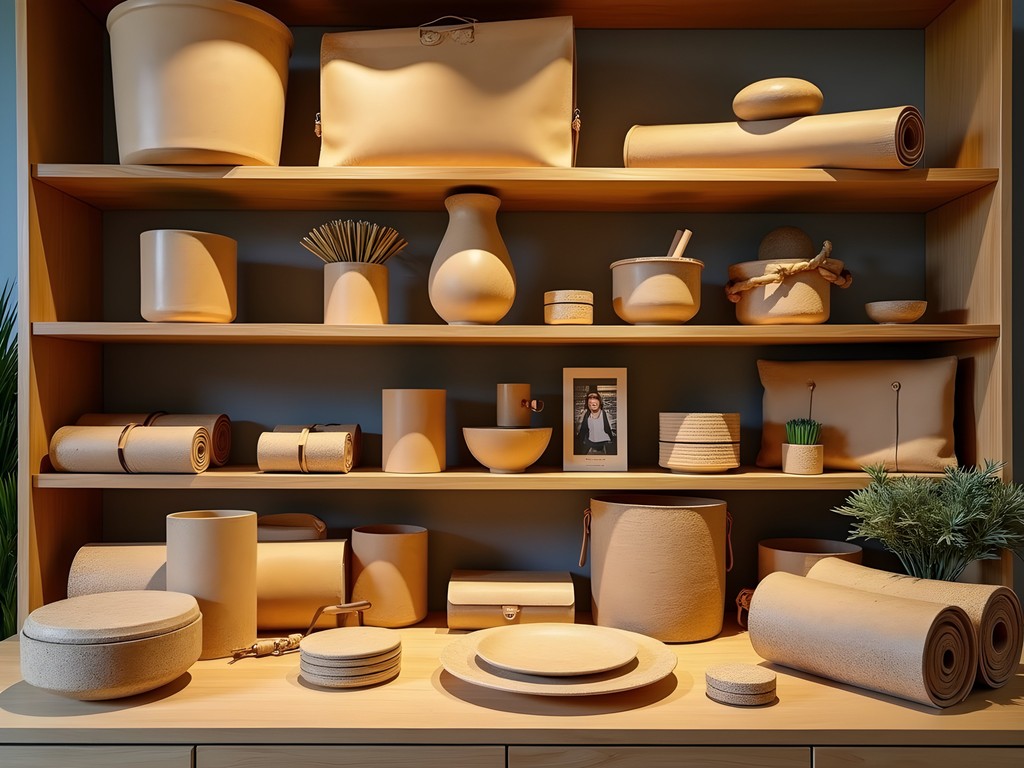
💡 Pro Tips
- Ask for a demonstration of cork's water-resistant properties—seeing is believing!
- Look for items with the FSC certification to ensure sustainable harvesting practices
- Consider functional items like cork laptop sleeves or phone cases that you'll use daily
Final Thoughts
As I packed my treasures from Lisbon—the vintage tiles wrapped carefully between layers of clothing, my cork wallet stuffed with receipts from memorable purchases, and a handcrafted silver pendant catching the light—I realized that shopping in this city had become something far more meaningful than mere consumption. Each item carried a story: of Portuguese craftsmanship persisting through centuries, of sustainability practices that predated eco-trends by generations, of artisans keeping traditions alive while innovating for the future. At 60, I've learned that the best souvenirs aren't just objects but portals to memories and connections. Whether you're browsing the chaotic sprawl of Feira da Ladra or the elegant displays of Embaixada, shopping in Lisbon offers something increasingly rare in our globalized world—authenticity. So when you visit, bring an extra bag for your finds, but also bring curiosity and time to discover the stories behind what you buy. In Lisbon, every purchase can be a small act of cultural preservation, a sustainable choice, and a beautiful memory all wrapped into one.
✨ Key Takeaways
- Lisbon offers shopping experiences for every budget, from flea market bargains to artisanal luxury
- Focus on uniquely Portuguese products like cork, ceramics, traditional textiles, and filigree jewelry
- The stories behind Portuguese crafts add immeasurable value to your purchases
- Many shopping areas double as cultural experiences, with historic buildings and traditional techniques on display
📋 Practical Information
Best Time to Visit
year-round (though spring and fall offer pleasant temperatures for street shopping)
Budget Estimate
€100-300 for a weekend of moderate shopping
Recommended Duration
2-3 days
Difficulty Level
Easy
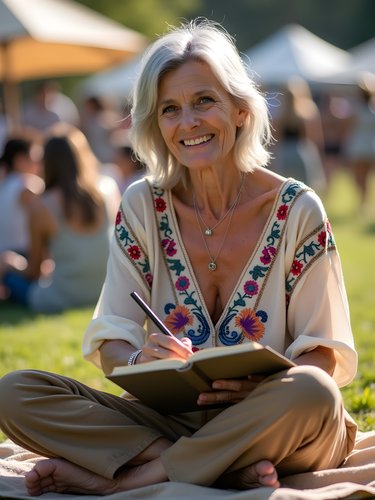
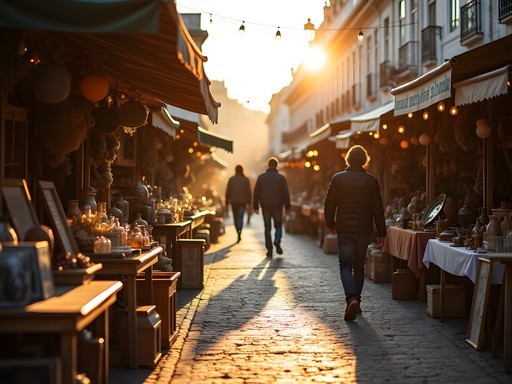
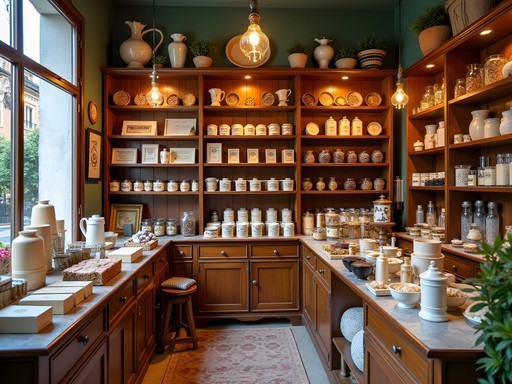
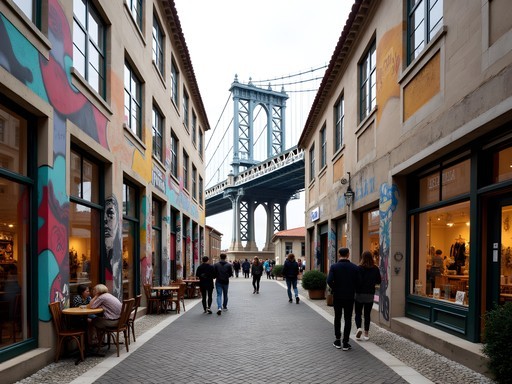
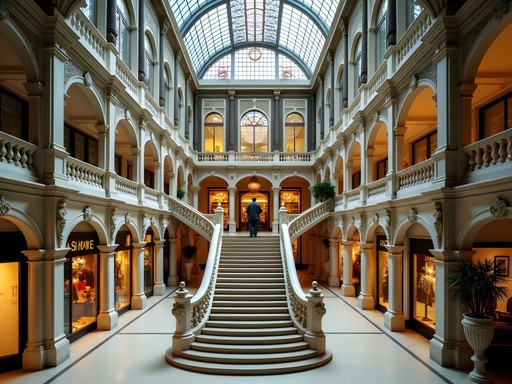
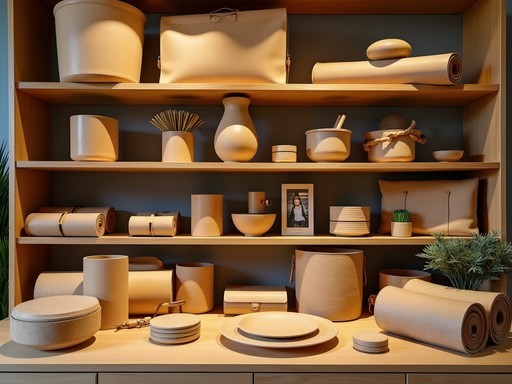


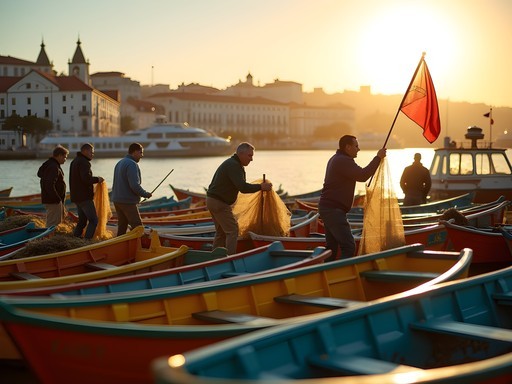
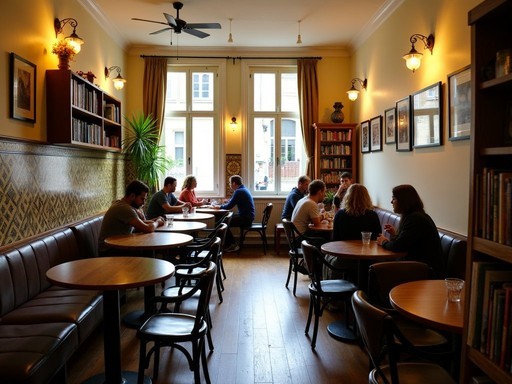
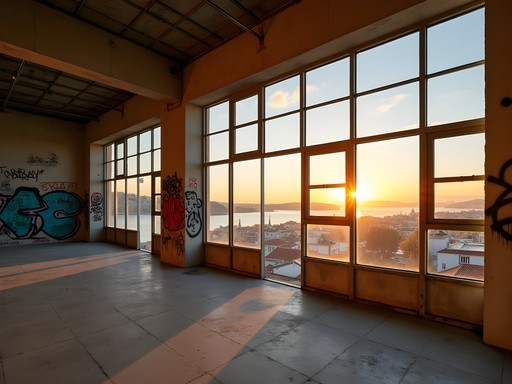
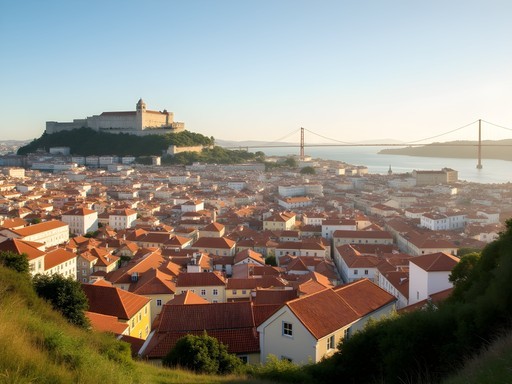
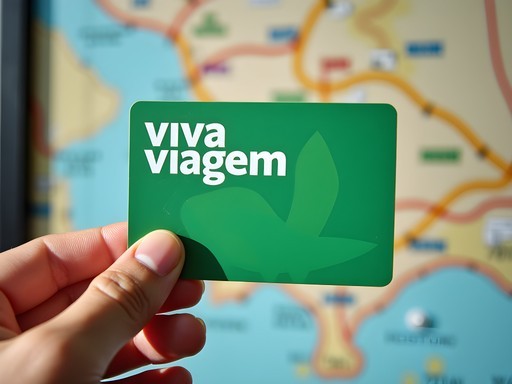
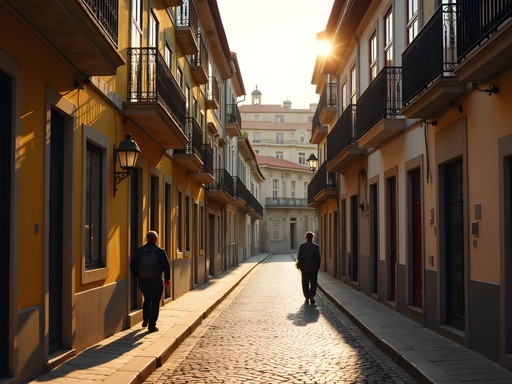
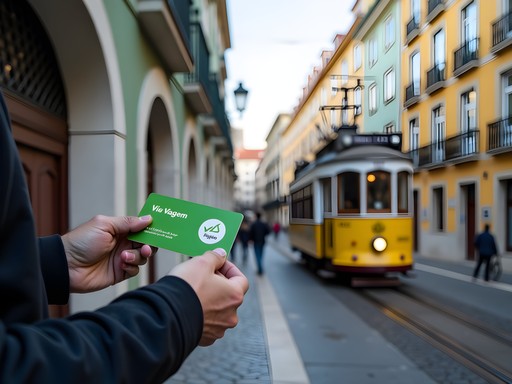
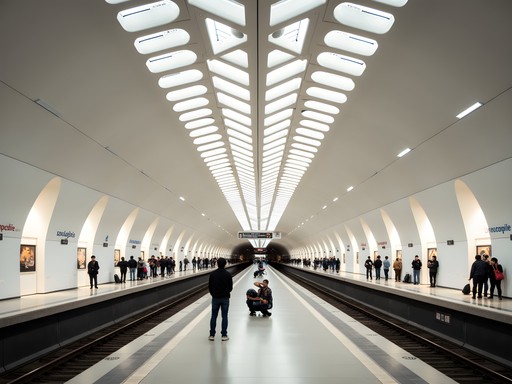
Comments
adventureperson
YES!! Lisbon is incredible for vintage hunting. The fado music while shopping at Feira da Ladra is such a vibe 🎵
Jean Wells
Excellent overview of Lisbon's shopping landscape. I'd add that Embaixada operates on a different schedule than typical shops—many vendors don't open until 11am or noon, so don't rush there first thing in the morning. The palace setting is stunning, but prices reflect the upscale location. For budget-conscious travelers, I found better value at the smaller artisan shops in Alfama neighborhood. The cork products at A Vida Portuguesa are legitimately high quality though—I've had my cork wallet for three years and it's aged beautifully.
bluewalker
Great photos! Really captured the vibe
happyguide
How did you pack those vintage tiles to get them home safely? I'm always nervous about shipping fragile stuff
Jean Wells
Not Rachel, but I've transported quite a few ceramics from Portugal. Wrap each piece individually in clothing (socks work brilliantly for smaller items), then place them in the center of your suitcase surrounded by soft items. I also recommend bubble mailers for extra protection—they're lightweight and don't add much to luggage weight. Never had a single break in 15+ trips.
Kimberly Murphy
Rachel, this brings back such memories! I spent an entire afternoon at LX Factory last year and ended up missing my dinner reservation because I was so absorbed in the little bookshop tucked in the back corner. The energy there is absolutely electric—industrial vibes mixed with this creative buzz. Did you try any of the rooftop bars? The sunset views over the Tagus are spectacular. Also completely agree about A Vida Portuguesa—I bought so many sardine tins as gifts that my luggage was ridiculously heavy on the way home!
adventureperson
Which bookshop?? I'm going in April and love finding hidden spots like that
Kimberly Murphy
It's called Ler Devagar—massive space with books floor to ceiling and a flying bicycle hanging from the roof. You can't miss it!
beachbackpacker8633
What day does Feira da Ladra run? Heading there in March and don't want to miss it!
Kimberly Murphy
It's Tuesdays and Saturdays! Get there early (like 8am) for the best finds before the crowds descend. The tile vendors are absolutely brilliant!
beachbackpacker8633
Perfect, thanks so much!!
sunnyninja
Love this! Adding Lisbon to my bucket list now 😍
redhero
Quick tip for anyone heading to Feira da Ladra - bring cash! Most vendors don't take cards and there's only one ATM nearby that always has a line.
Frank Garcia
Solid advice! Also worth mentioning - don't be afraid to haggle, but be respectful about it. Starting at 70% of asking price is usually a good strategy there.
TravelingTeacher
Those tile photos are gorgeous! Really captures the colors of Lisbon.
LisbonLover22
Going there next month, any other tips for Embaixada? Worth visiting on a Monday?
Rachel Hunter
Definitely check their website before going on Monday - some of the individual shops inside have different hours. The building itself is worth seeing even if some shops are closed! The jewelry designer on the second floor (can't remember the name) has beautiful pieces inspired by Portuguese maritime history.
Venture X
Premium card with 2X miles, $300 travel credit, Priority Pass